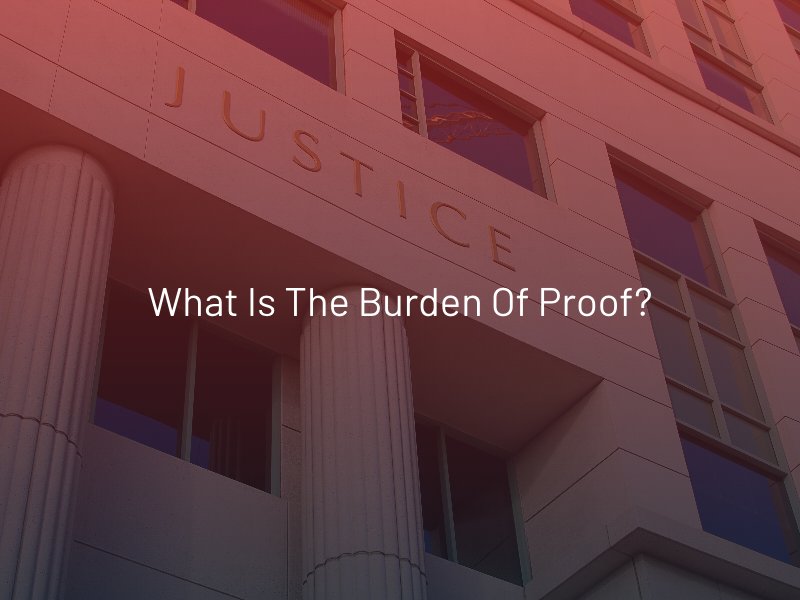What is the Burden of Proof?
To succeed in a personal injury case in Nevada, the plaintiff (victim) has the burden of proof. This means they must provide evidence of their allegations that another party is responsible for their injury and can only recover compensation if they do so.

The Definition of Burden of Proof in Personal Injury Cases
In personal injury cases, the plaintiff is obligated to prove their claim by a preponderance of evidence. In other words, it is “more likely than not” that the defendant (at-fault party) is responsible for their harm and financial losses (e.g., medical bills, lost income, emotional distress, etc.). Therefore, the plaintiff must show that the jury the defendant is at least 51% responsible for their accident.
It is the lowest standard of proof to meet. Compared to criminal cases, in which the prosecution must prove beyond a reasonable doubt that the defendant is guilty.
Meeting the Burden of Proof in a Personal Injury Case
For a plaintiff to meet the burden in a personal injury case, they must provide extensive evidence of the defendant’s negligence. There are four main elements of negligence to establish:
Duty of Care
First, the plaintiff (victim) must establish that the defendant (at-fault party) owed them a duty of care. For example, in a car accident case, if the defendant was another driver, they owe a duty to others on the road to follow traffic laws.
Breach of Duty
The defendant failed to exercise reasonable care under the circumstances—for example, proof the defendant was under the influence of alcohol or texting while driving.
Causation
The defendant’s breach of duty directly caused harm to the plaintiff. In other words, the plaintiff would not have been injured but for the defendant’s failure to demonstrate reasonable care.
Damages
The plaintiff suffered injuries and financial damages due to the defendant’s negligence. (e.g., medical bills, lost income, pain and suffering, etc.)
Examples of evidence required to demonstrate these elements include photographs, video, witness statements, cell phone records, medical bills, expert testimony, and any other documentation of probable fault.
Burden of Proof for Punitive Damages
Punitive damages are a type of compensation rarely awarded in personal injury cases. They are reserved for cases involving a defendant that was particularly reckless or exhibited egregious behavior and are meant as punishment. For the court to grant punitive damages, the plaintiff must meet an elevated burden of proof.
Clear and convincing evidence that the defendant acted out with malice, oppression, or some form of fraud must be presented. The court system requires a higher burden of proof to ensure that only the worst wrongdoers receive this type of harsh penalty.
How We Can Help with Your Case’s Burden of Proof
Personal injury claims and ensuring you meet the burden of proof required in your case can be complicated. At Harris & Harris Injury Lawyers, we have the experience and resources needed to succeed in your claim. Call (702) 710-8624 or send us a message online to arrange a free consultation with our Las Vegas personal injury attorneys today.